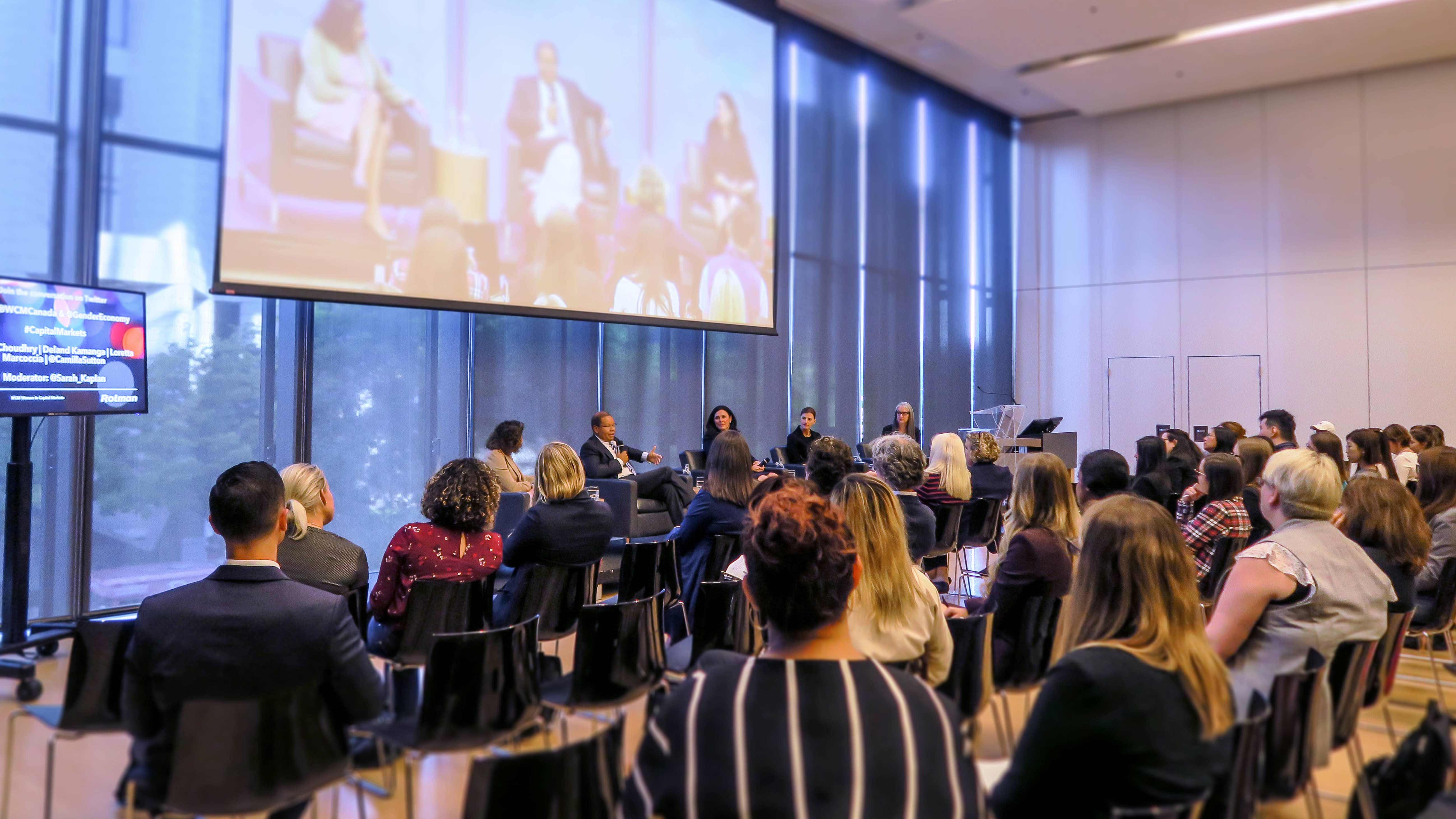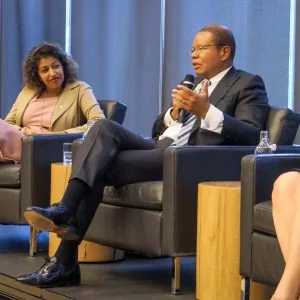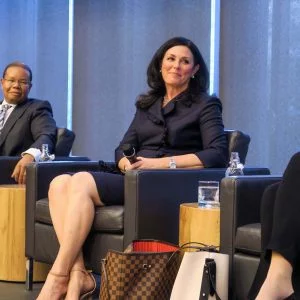“I can’t believe we’re not further along,” was the overall sentiment that kicked-off our Women in Capital Markets panel discussion on September 13. Camilla Sutton, Founder and CEO of Women in Capital Markets (WCM), began the event with a startling statistic: in the early 1990s, 10% of Managing Directors in Capital Markets were women, just over 20 years later in 2016, it’s 12%. That’s a mere 2% increase.
Why has there not been more progress promoting gender diversity, particularly at the managerial level, in capital markets?
To explore this question, in collaboration with WCM, GATE brought together: Amber Choudhry, Managing Director, Debt Capital Markets at CIBC Capital Markets; Deland Kamanga, Head of Global Fixed Income Currencies and Commodities (FICC) within BMO Capital Markets; Loretta Marcoccia, SVP & Chief Administrative Officer, Global Capital Markets, Scotiabank; and Camilla Sutton, President and CEO of Women in Capital Markets in a panel discussion moderated by Sarah Kaplan, Director of the Institute for Gender and the Economy (GATE).
From discussing the gender wage gap to risk-aversion in management and toxic organizational culture, this panel shed light not only a few reasons why the number of women haven’t increased in capital markets since the early ‘90s, but also contrasted diversity initiatives that haven’t produced significant results with some new initiatives that show more promise.
The panel discussion highlighted some important “reframes” of the issues:
- It’s not that women are more risk-averse in seeking advancement in capital markets, it is that the managers are risk-averse in promoting them. Promoting someone always means taking a risk that they’ll succeed in the new role, and many managers are more willing to do that for men than women.
- It’s not women having children is holding back their advancement. If that were the only problem, then we would have a highly racially diverse representation of people in capital markets, but we don’t. So, this suggests that there are forms of bias in the system holding people back.
Many of the “best practice” approaches may not be effective on their own. Panelists highlighted a number of initiatives that may have had less impact than intended because they weren’t coupled with accountability and cultural change. For example, implementing the Rooney Rule requiring at least one minority (e.g. woman or visible minority) be interviewed for open positions. The lesson is that making one change absent broader organizational change won’t move the needle.
Here’s what panelists believe may help make change initiatives more effective:
- Increasing accountability of managers to apply new practices and hit targets
- Using audits of hiring practices so that initiatives like the Rooney Rule are applied effectively
- Increasing transparency into hiring and promotion procedures
- Linking unconscious bias training with skills inventories in order to mitigate backlash
- Integrating diversity and inclusion targets into professional reviews; such as requiring managers to expand their personal networks by three
- Creating a Diversity and Inclusion Office that is visible and active on the trading floor
- Implementing a top-down culture of change that starts with the CEO
- Tying diversity and inclusion to the firm’s overall success
Ultimately, uncovering why there aren’t more women in capital markets is a “must” for the industry. As Camilla Sutton stated, “Diversity use to be this ‘nice-to-have’ and then it became a business case, and now it’s become a major risk factor.” This extends not just to gender diversity, but also to other forms of diversity as well (e.g. racial, sexual). This reflects an organizational culture and structure within capital markets that are not necessarily welcoming to individuals who don’t resemble the majority demographic. Therefore, panelists suggested that solutions must also take into consideration the wider needs of all minority individuals, beyond just (white) women, in order to promote transformational change.










